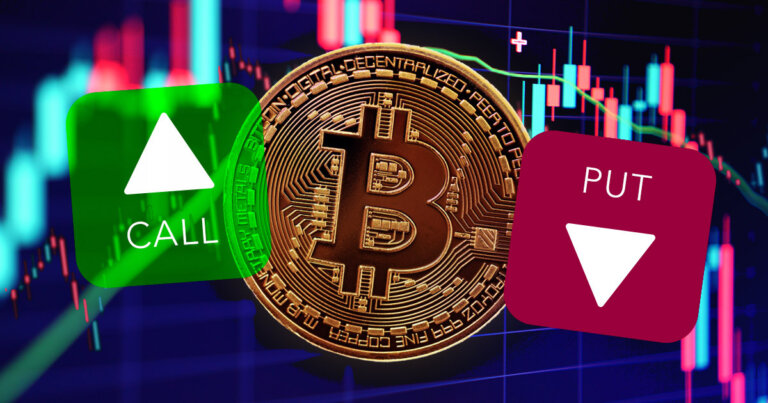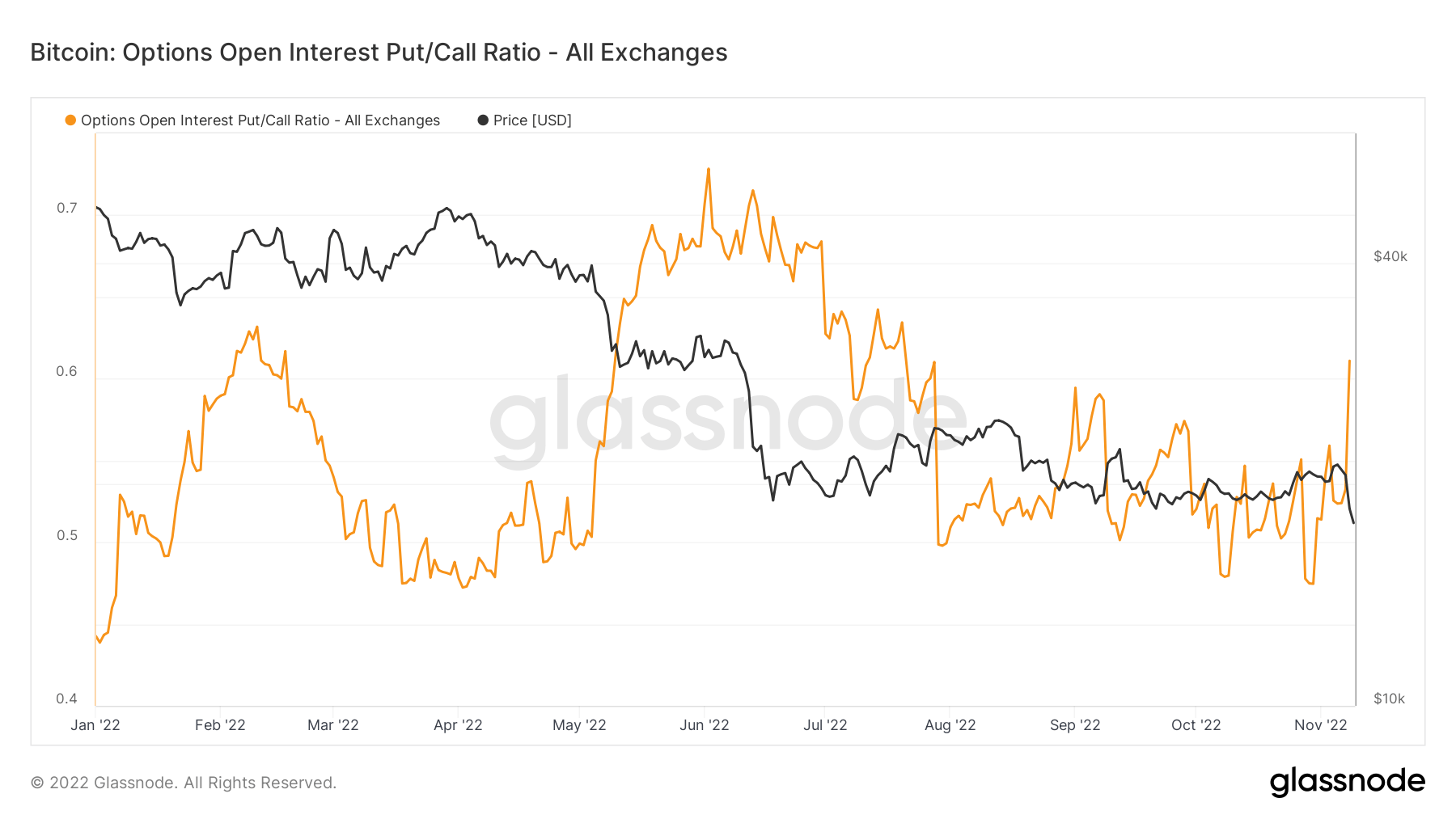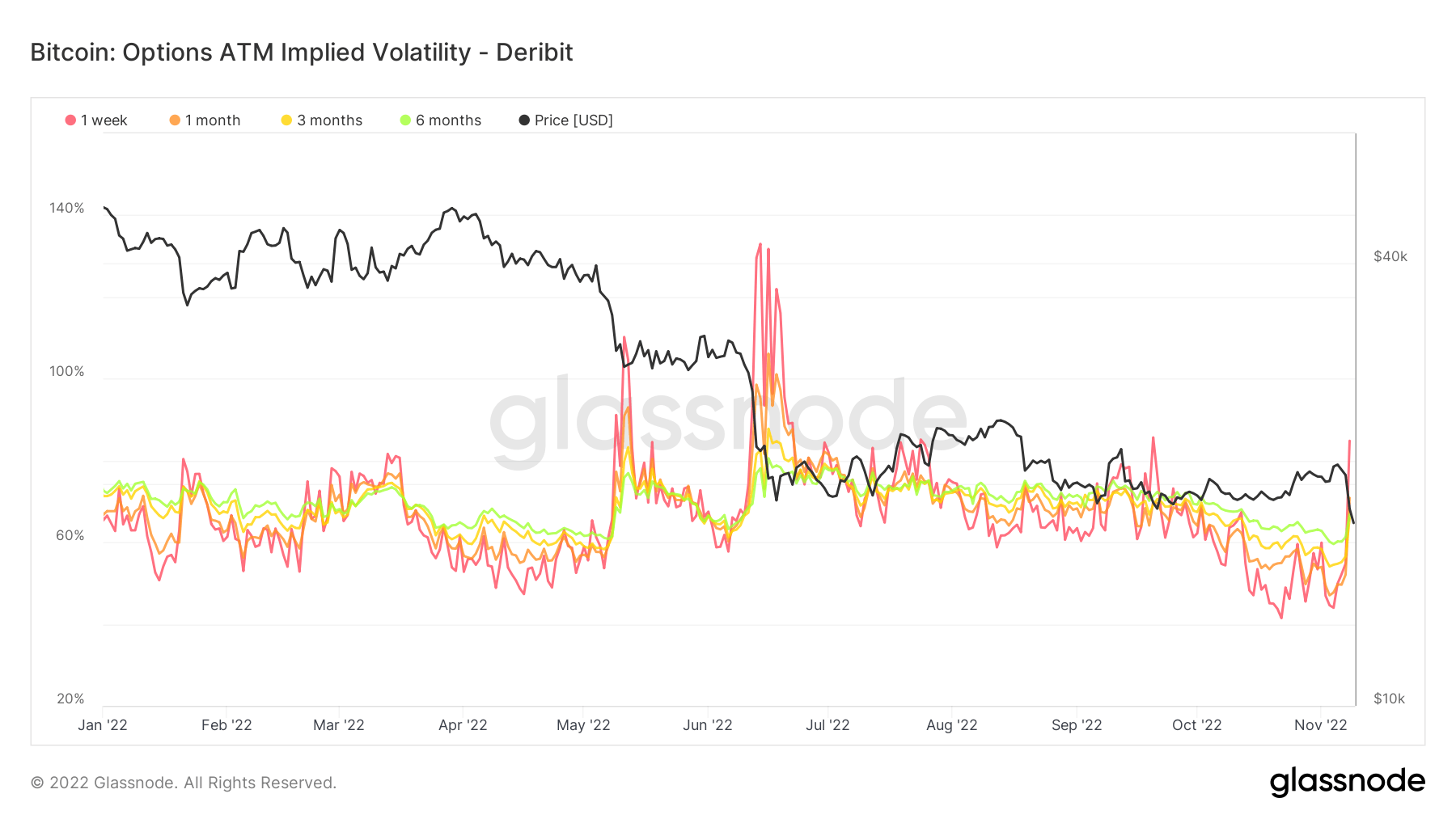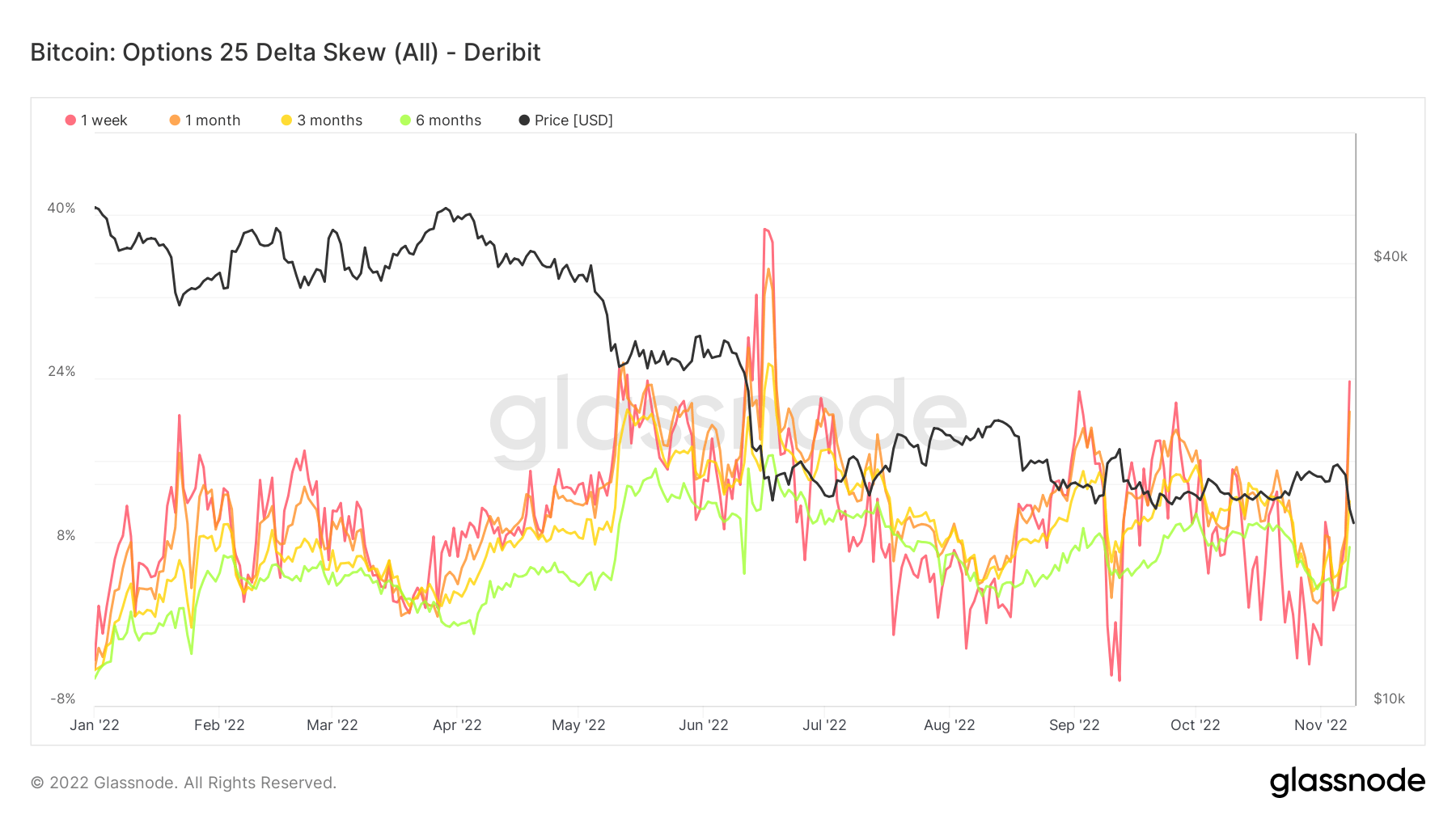 Bitcoin options traders swing bearish as FTX fallout takes hold
Bitcoin options traders swing bearish as FTX fallout takes hold Bitcoin options traders swing bearish as FTX fallout takes hold
On-chain data shows options traders have flipped bearish and are bracing for volatility.

Cover art/illustration via CryptoSlate. Image includes combined content which may include AI-generated content.
Recent days have seen increased market volatility as the FTX saga blows up.
Binance’s offer to buy FTX gives the beleaguered exchange a lifeline. However, as made clear by Binance CEO Changpeng Zhao (CZ,) the deal is subject to satisfactory due diligence.
Crypto Twitter is awash with speculation that once FTX’s books have been reviewed and cost-benefit analysis has been considered CZ will pull out of the deal.
Meanwhile, analysis conducted with Glassnode data showed Bitcoin derivatives markets have responded accordingly.
Bitcoin Open Interest Put/Call Ratio
A put is the right to sell an asset at a set price by a specified expiration date. Whereas a call refers to the right to buy an asset at a set price by a specified expiration date.
The Open Interest Put/Call Ratio (OIPCR)is calculated by dividing the total number of puts open interest by the total number of calls open interest on a particular day.
Open interest is the number of contracts, either put or call, outstanding in the derivatives market, i.e. unsettled and open. It can be considered an indication of money flow.
The chart below shows the OIPCR spiked higher as the FTX situation took hold. The swing towards buying puts suggests bearish market sentiment among options traders.
Crucially, the OIPCR has not (yet) reached the extremes seen in June, during the Terra Luna collapse. Nonetheless, as a developing situation, there is scope for puts to extend further.

ATM Implied Volatility
Implied Volatility (IV) gauges market sentiment toward the probability of changes in a particular asset’s price – often used to price options contracts. IV usually increases during market downturns and decreases under bullish market conditions.
It can be considered a proxy of market risk and is usually expressed in percentage terms over a particular time frame.
IV follows expected price movements within one standard deviation over a year. The metric can be further supplemented by delineating IV for options contracts expiring in 1 week, 1 month, 3 months, and 6 months from the present.
The chart below shows a sharp reversal from previous bullish lows, suggesting options traders are expecting an uptick in volatility ahead.

Options 25 Delta Skew
The Options 25 Delta Skew metric looks at the ratio of put-to-call options expressed in terms of Implied Volatility (IV).
For options with a specific expiration date, this metric looks at puts with a delta of -25% and calls with a delta of +25%, netted off to arrive at a data point. In other words, this is a measure of the option’s price sensitivity given a change in the spot Bitcoin price.
The individual periods refer to option contracts expiring 1 week, 1 month, 3 months, and 6 months from now, respectively.
The uptick in the 25 Delta Skew shows traders are scrambling for puts, marking a U-turn in sentiment confirmed by OIPCR data.




























































